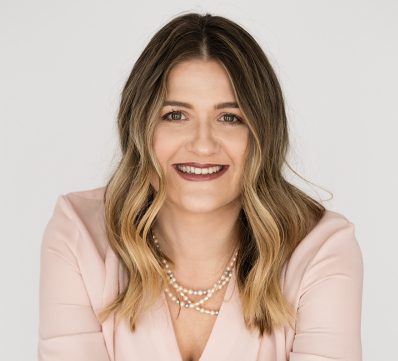I set out to find a female mentor two years ago. The quest validated the difficulty & awkwardness of finding mentorship outside my current employer. Women would generously agree to have coffee or a conversation, but the relationships never grew beyond that.
If you can’t find… but find others in need, build it.
That challenge led me to create a “stage”. I invited the most successful, accomplished women I could find to share their experiences, expertise, & wisdom on the workplace issues many of us were facing.
As “Mentor Dinners” grew in popularity, I began to study the reasons why total strangers both agreed to share and purchase a ticket to attend. After polling several hundred early attendees, it became clear that traditional forms of mentorship weren’t fulfilling our desire to learn & grow safely from other women’s experiences.
Every journey is worthy of a stage, microphone, and an audience eager to learn from it.
Here’s what I’ve learned:
1. One mentor doesn’t have all our answers.
Within our current mentorship community, the same questions get asked to different mentor sessions. The answers vary as greatly as the women & careers that shaped them. After learning from nearly 200 of Charlotte’s top female executives & leaders, I can say with certainty that we’ve never heard the same mentorship twice.
The challenge for us as learners is pairing mentorship with enough self-awareness to adapt the advice to our unique work styles & situations. This can be tough early on in our careers, as we may not have enough experience to develop that self-awareness. The solution is exposure to many diverse mentors, and then practice profusely as we explore what works for us.
2. We don’t always know the questions to ask.
In every mentorship session, the community listens intently as the mentor walks through her most pivotal lessons learned. The formula & questions are always similar, but the responses and especially the Q&A, vary greatly. We usually know the pain of our current situation, before we know exactly how to ask for advice, and ultimately how to solve it. A mentorship community gives us access to other members who may be on parallel, but more advanced journeys.
These “ah-ha moments” happen at almost every session. When someone asks a question regarding a challenge she’s currently struggling with, immediate light bulbs are set off in the room. Then as the mentor has a bit of wisdom, or shares how she dealt with a similar situation, it’s instantaneous validation of shared pain and involved humans.
3. External mentors foster unfiltered learning environments.
This is the number one reason young female executives are becoming members. Many of them do not have access to a formal mentorship program within their current employer, or at least one they trust enough to share their vulnerabilities, weaknesses, and organizational challenges.
This proves to also be an attractive mentorship alternative for those whose managers are hesitant to mentor them. The newly released data on men being uncomfortable mentoring women has been no surprise. But actually, I’ve witnessed a greater challenge for women—other women. Yes, men may not proactively accept the mentor role. But the more frequent setback discussed in our mentorship sessions is the legitimate or perceived female competition within organizations. External mentorship programs free us from the gremlins that position us as competition, and allow us the safety to share, learn, and grow.
4. Traditional career paths no longer exist.
This discovery has been the most fascinating to me. I’ve been amazed, and frankly inspired by the number of women who have a 9-5 and 5-9. Women are no longer only looking for development opportunities as an employee, but most often they are looking for greater impact as a woman.
Technology has made it easier than ever to create or find our digital tribes. Yet, what I’ve learned through our in-person mentorship sessions, is that we still yearn to connect at the human level. Mentorship, because it validates our experiences by sharing the wisdom left behind, is an effective vehicle for both meaning and impact—the two greatest currencies in a life well-lived.
….
Stacy Cassio is on a mission to transform how we seek & obtain mentorship by providing access to external mentors. The Pink Mentor Network builds mentorship networks customized to any career path. Unlike traditional forms of mentorship, we challenge & help members to find a network of mentors to accelerate their careers & businesses. Membership opportunities are available here.
The program is currently available in Charlotte, NC. However, we are quickly expanding because Stacy realizes mentorship is a global resource.


